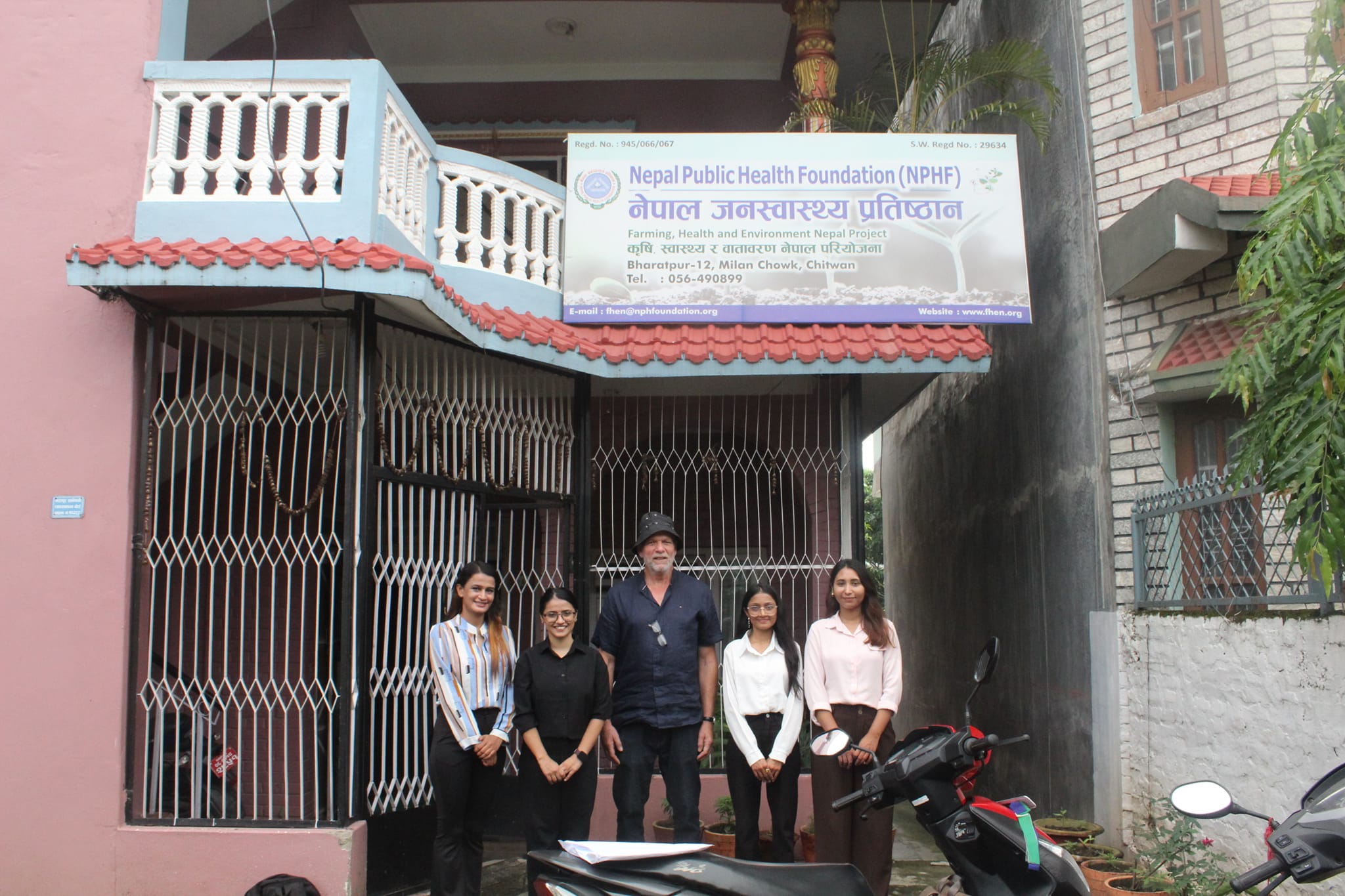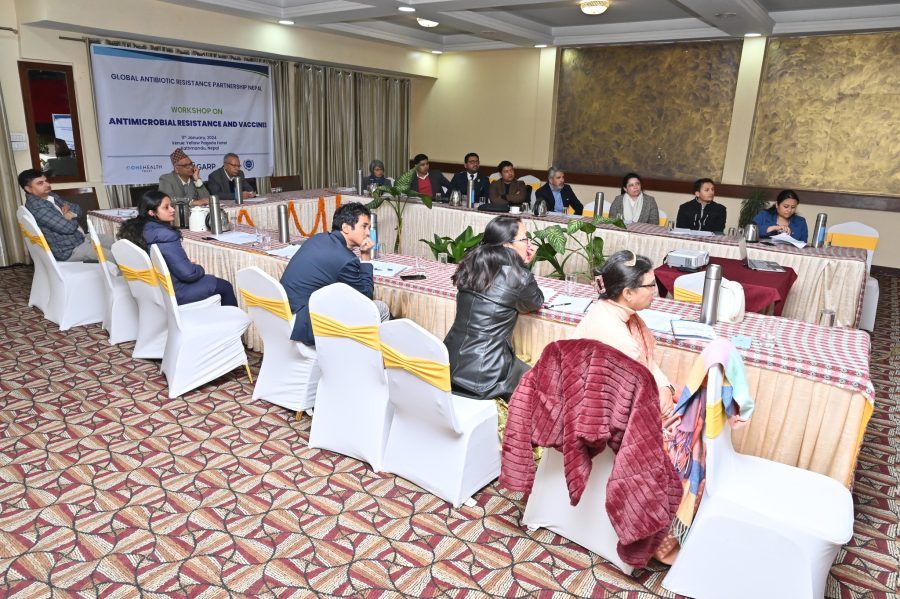
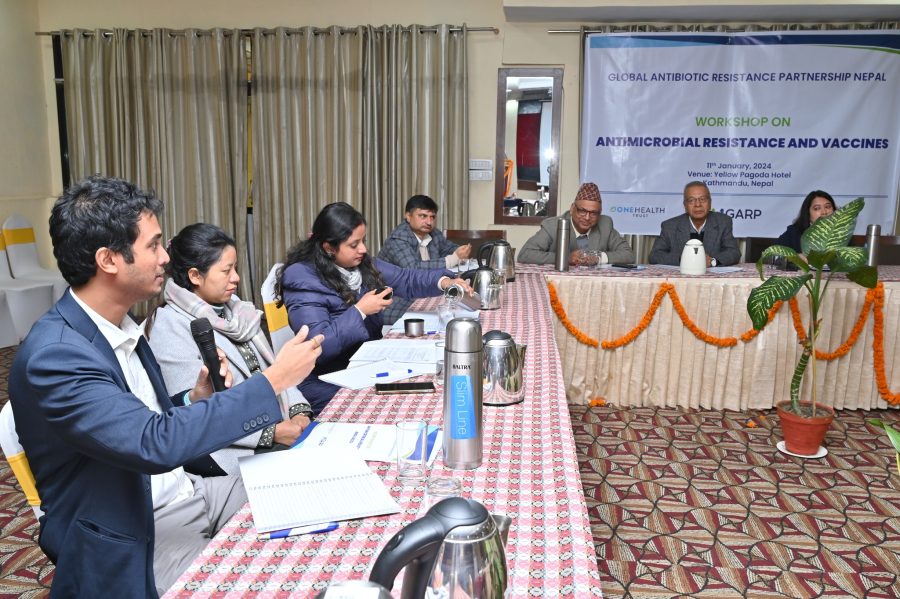



Nepal Public Health Foundation under the Project Farming Health and Environment Nepal conducted a webinar on “Use of Pesticides in Agriculture, its negative Impacts on Ecology and measures for its Minimization”.
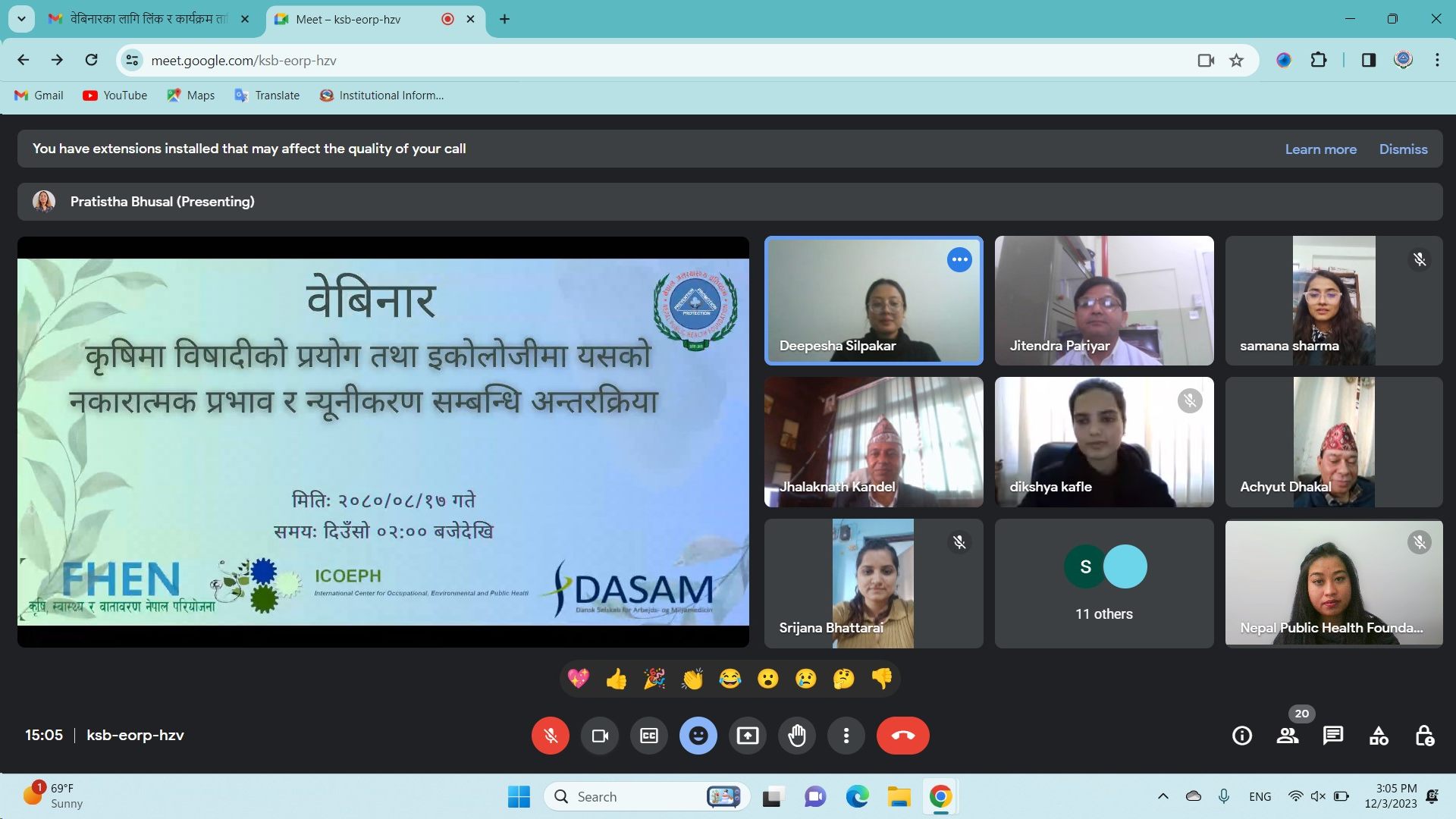
The presentation was given by Mr. Subodh Khanal, Vice Principle at Gauradaha Agriculture Campus and Institute of Agriculture and animal science on “Pesticide its use, negative impact and measures to reduce its impact on health and environment”
We were delighted to have a very insightful session provided by Prof Dr. Sharad Raj Onta on Advocacy, Founding General Secretary, NPHF and CSC member FHEN.
Pesticide retailers are responsible for selling pesticides to end-users, while pesticide sprayers are individuals involved in the application of pesticides. The use of pesticides in agriculture plays a crucial role in ensuring crop protection and productivity. Pesticides are used widely for crop protection, pest control, and disease management, but their misuse can have serious health and environmental consequences. However, the safe and responsible use of pesticides requires effective monitoring and regulation of both pesticide retailers and pesticide sprayers. Monitoring and regulating these entities are vital to safeguard public health, protect the environment, and ensure compliance with legal and safety requirements.
The review program was conducted to evaluate the existing policies and regulations governing the registration and monitoring of pesticide retailers and sprayers and also to identify gaps in the current system and suggest improvement that can help enhance the effectiveness of the monitoring and registration processes.
Chief of District Coordination Committee
Agriculture Officers of respective municipalities
Chief of Agriculture Knowledge center
Cooperative representatives of respective municipalities.
Seema B.K., project officer, welcomed the attendees and thanked them for their presence and acknowledged the need of effective monitoring and registration of pesticide retailers and sprayers. She introduced the chief guest for the meeting, Narayan Prasad Adhikari, chief of District Coordination Committee and chaired all of the participants in their respective positions.
He pointed use of pesticides as vital part of modern agriculture, enabling farmers and growers to produce higher yields and better quality of crops but the potential health and environmental risks associated with the use of pesticides cannot be ignored. It is, therefore, essential to have robust monitoring and registration procedures in place to ensure the safe and responsible use of pesticides. He stressed towards need ofrecognition the importance of this issue and taking the initiative to evaluate the existing policies and regulations governing the registration and monitoring of pesticide retailers and sprayers. It is essential to review these policies and regulations regularly to ensure that they remain effective and up-to-date with the latest scientific and technological advances.
He wished the organizers every success in this endeavor, and look forward to seeing the outcomes of this review program contribute towards a safer and more sustainable use of pesticides agriculture and other sectors.
Ms. Samana Sharma, Project manager gave short insights of project and about the previous training conducted by FHEN to pesticide retailers and sprayers. She shared change in knowledge percentage of participants in pre and post test of trainings. She also shared experience and changes of pesticide retailers and sprayers observed during follow up.
Min Bahadur Pun, deputy chief of AKC (Agriculture Knowledge Center) facilitated this session and major highlights of this session were:
Registration of Pesticide Sprayers.
Monitoring:
The monitoring of pesticides primarily falls under the responsibility of pesticide inspectors, specifically plant protection officers; however, their numbers are currently insufficient to meet the demand. Additionally, it is recommended that only licensed individuals should be permitted to sell pesticides, and in the event of unauthorized sales, a warning should be issued for the first offense, followed by penalties administered by pesticide inspectors for repeated violations.
In conclusion, the review program on the monitoring and registration of pesticide retailers and sprayers highlighted the need for robust monitoring procedures, effective registration systems, policy implementation, and support for Personal Protective Equipment (PPE). The discussions emphasized the importance of regular policy reviews, training programs, criteria for registration, and licensing of pesticide retailers and sprayers. The involvement of cooperatives and local-level recommendations was also recognized. The program provided valuable insights and recommendations for improved collaborations and sustainable pesticide management practices.
Farming, Health and Environment Project
Phase III
Nepal Public Health Foundation
12th May
Nepal Public Health Foundation (NPHF) celebrated its 14th Annual General Meeting during which it welcomed a new set of Executive Board members for the upcoming three-year term.
The newly elected Executive Board members are as follows:
President: Dr. Lochana Shrestha
Vice-President: Dr. Sameer Mani Dixit
Secretary: Prof. Dr. Abhinav Vaidya
Treasurer: Dr. Rajendra BC
Member: Dr. Jitendra Pariyar
Member:Dr. Raba Thapa
Member: Dr. Madhur Basnet
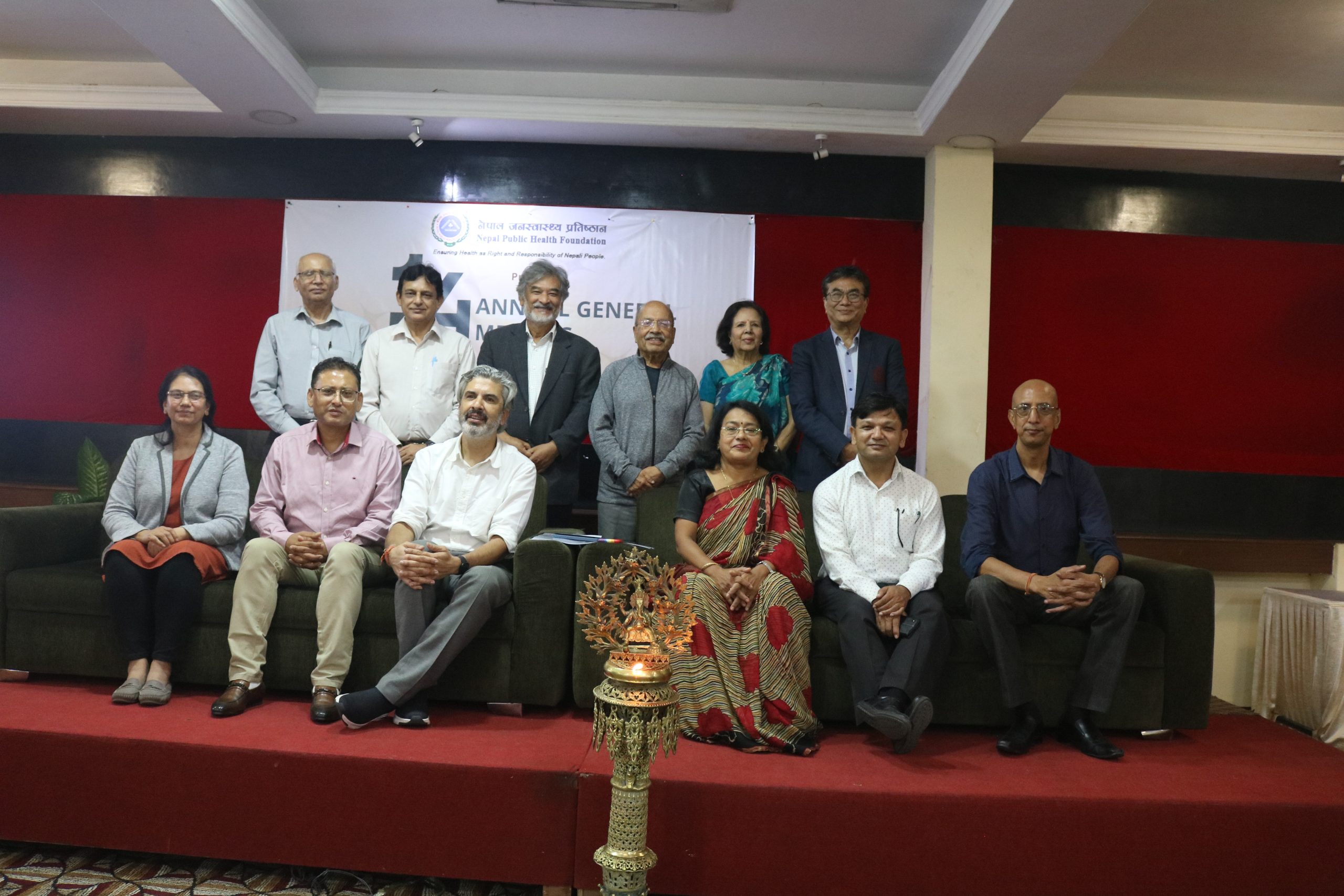
NPHF extends its heartfelt congratulations to each of the newly appointed Executive Board members. NPHF is confident that under their leadership, it will continue to thrive and make substantial contributions to the field of public health in Nepal.
